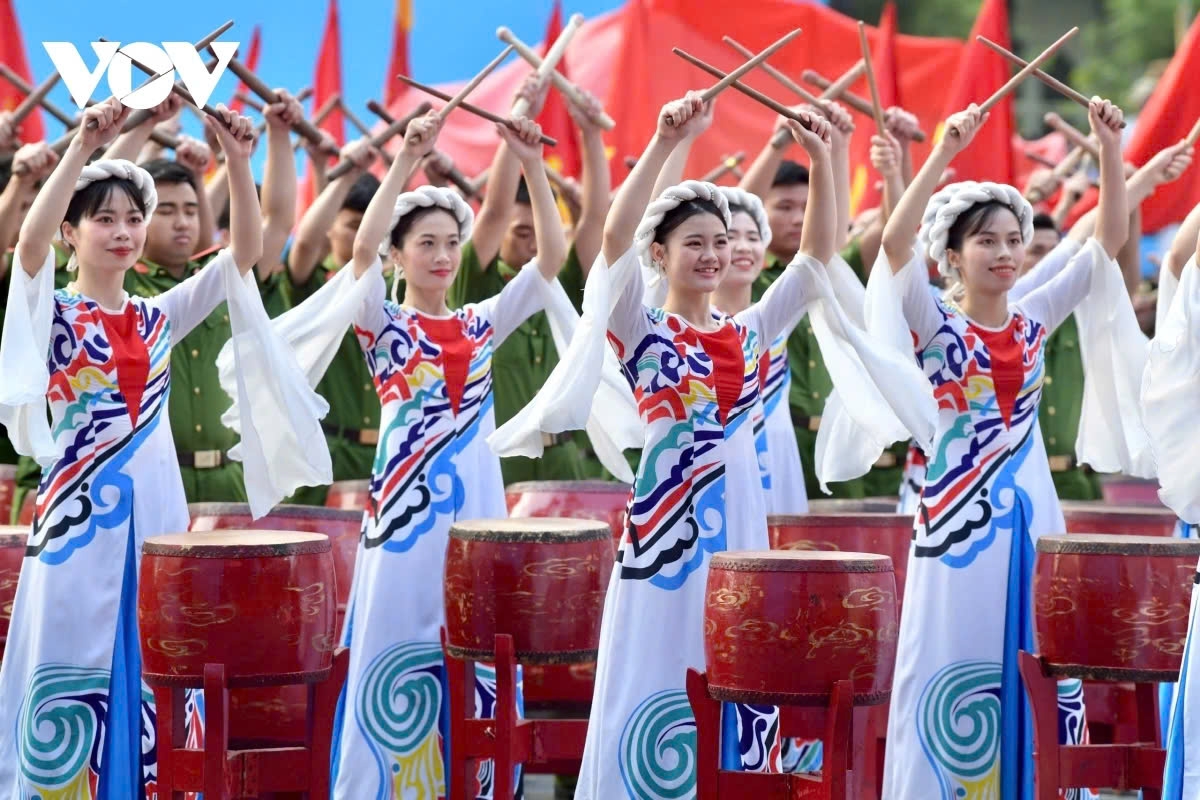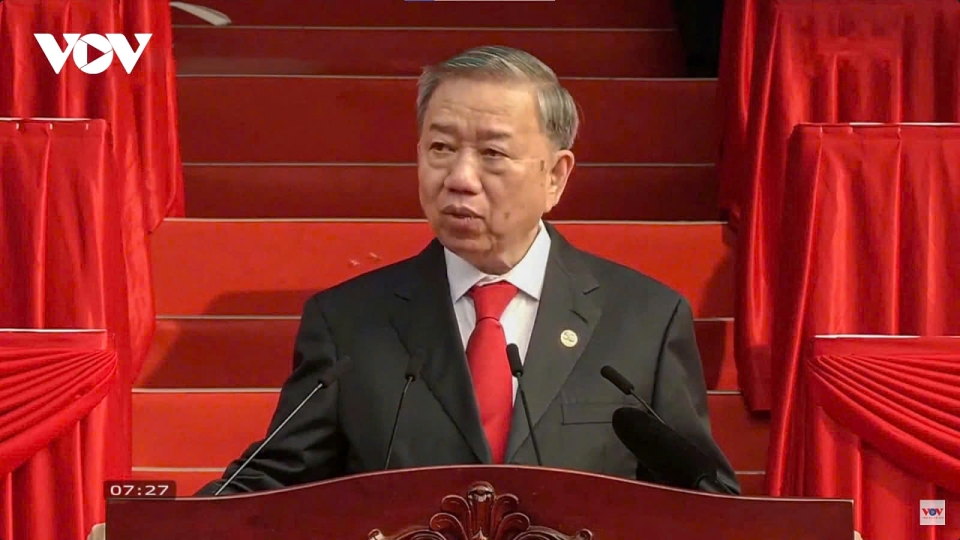50-year development achievements drive Vietnam forward into new era
VOV.VN - Marking 50 years of national reunification (April 30, 1975 - 2025), Vietnam is celebrating a legacy of resilience, unity, and development as it stands on the threshold of a new era of stronger national growth and deeper global integration.

Over the past five decades since the liberation of the South and the reunification of the country, as well as nearly 40 years of Đổi mới (Renovation), Vietnam has transformed into a dynamic, rapidly developing nation. Through perseverance and strategic vision, the country has maintained its independence, sovereignty, and socialist orientation, while achieving significant socio-economic milestones.
Steady economic growth
Vietnam’s socialist-oriented market economy has seen rapid progress. In 2023, its GDP reached US$433.7 billion, ranking 35th globally and fifth in ASEAN. Per capita income rose to US$4,323, 58 times higher than in 1993. The poverty rate plummeted from 58% in 1993 to just 2.93% in 2023.
Macroeconomic stability has been maintained, inflation controlled, and major economic balances ensured, with a relatively high growth rate compared to regional and global standards. Labour productivity has steadily increased, with the living standards of the population significantly improving.
In 2024, the national economy expanded by 7.09%, positioning Vietnam among the fastest growing economies worldwide. GDP reached US$476.3 billion with per capita income standing at US$4,700. Foreign direct investment surged to reach US$38.23 billion in registered capital, with disbursed capital at a record US$25.35 billion. Export-import turnover totaled US$786.29 billion with a trade surplus of US$24.77 billion, marking the ninth consecutive year of a trade surplus.
Development investment yielded positive outcomes, with numerous large-scale infrastructure projects improving national and international connectivity. The economic structure shifted positively, with the digital and green economy playing increasingly important roles. Most key sectors grew, particularly industry, which recovered strongly and served as a key growth driver. In addition, its brand value reached US$507 billion, ranking 32nd out of 193 countries, a one-rank improvement compared to 2023.
Profound advances in social development
Vietnam has also been able to achieve profound advances in education, health care, and social welfare. Nearly 99% of adults are literate, whilst tertiary education enrollment has increased nearly 20-fold. Indeed, the country achieved universal lower secondary education all the way back in 2014.
Elsewhere, scientific and technological capacity has improved. Social welfare policies that cover ethnic minorities, religious followers, social policy beneficiaries, and policies for overseas Vietnamese have been effectively implemented. Public health has been prioritised, with many advanced treatment techniques now available.
In health care for instance, the insurance coverage rate has risen from 90.2% in 2020 to 94.1% in 2024 and advanced medical technologies are now accessible to more citizens. The national happiness index, as assessed by the UN, rose 11 notches in 2024 to rank 54th out of 143 countries.
Efforts to build a knowledge-based economy have so far paid off. The science and technology ecosystem, including innovation and entrepreneurship, continues to expand. Labour productivity in 2024 was estimated to be at VND221.9 million per worker, with the employment rate improving significantly.
Firm national defence and security
Vietnam continues to reinforce national defence and public security. National independence, sovereignty, unity, and territorial integrity, as well as national interests, have all been firmly safeguarded. Economic, cultural, and social development has been harmonised with national defence and security. Defence and security capabilities have also been enhanced. The "people’s hearts and minds" posture has been integrated with the all-people national defence and security for all citizens.
The People’s Army and People’s Public Security forces are being built into elite, modern forces, politically strong and ready to defend the country early and from afar. A closely linked public security system has been formed from central to local levels. Grassroots police forces and public order forces have been able to bring security personnel closer to the people. Responsive policies and effective solutions have ensured proactive, surprise-free defence of peace and stability for the cause of national development.
Expanded foreign relations and global integration
In terms of foreign affairs, international integration has deepened and become more effective, achieving strategically significant and long-term results. Vietnam has shaped a favourable diplomatic landscape, contributing to national security and development, all while elevating its global status. It has worked to strengthen ties with major partners and global powers, fulfilled its various international responsibilities, and proposed initiatives in key multilateral forums.
Economic diplomacy has been promoted, with a focus on maximising economic cooperation opportunities. Vietnam has expanded and deepened diplomatic relations with 194 countries and territories, including three special relationships, 19 strategic partners and 13 comprehensive strategic partners. The country now has comprehensive or strategic partnerships with all five permanent members of the UN Security Council whilst it has expanded trade relations with 230 countries and territories.
As Vietnam marks this historic milestone, it is poised to enter a new development era which is confident in its achievements, driven by innovation, and committed to building a powerful, prosperous, and sustainable future.





